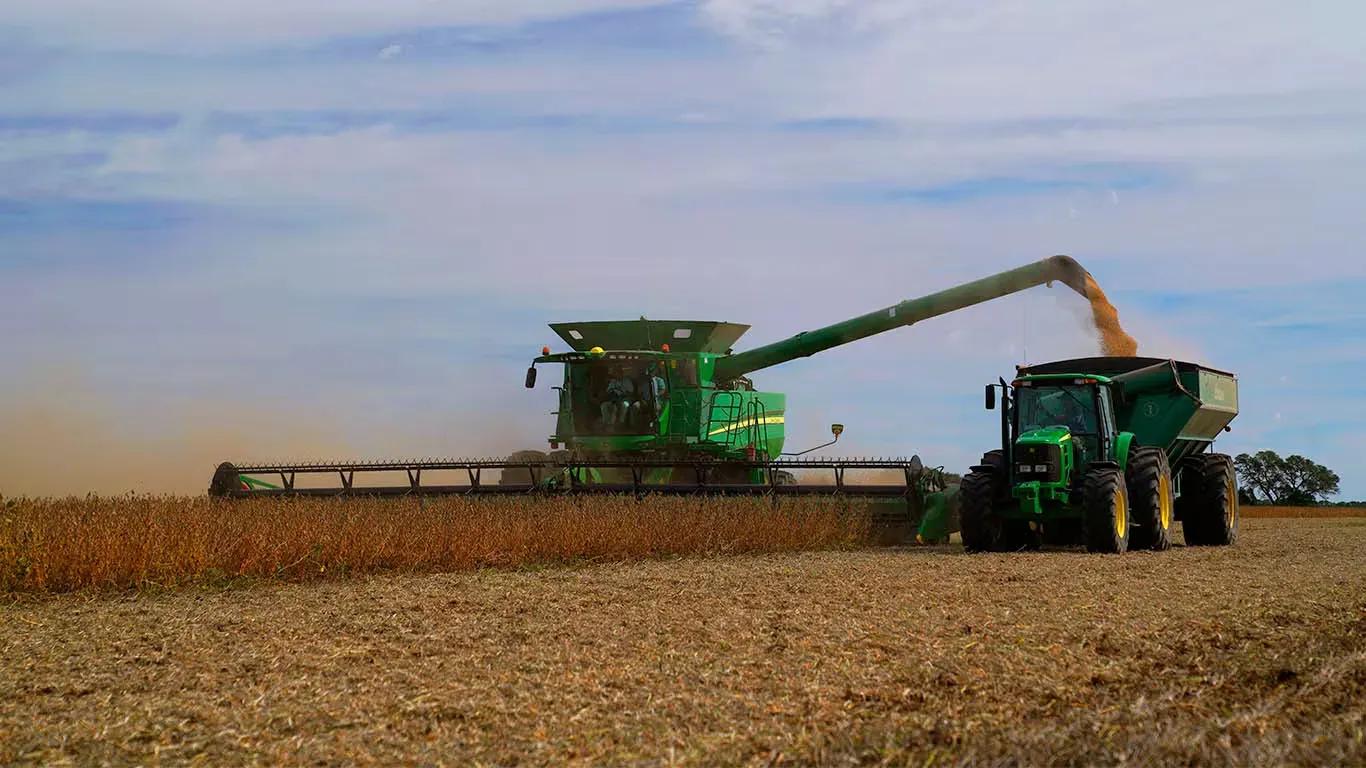Since the government came to power, the country and the agricultural sector have undergone a series of significant changes that have generated expectations as well as criticisms within the population and their respective productive sectors.
The agricultural sector is going through one of its worst chapters in the last 20 years; it has just suffered the worst drought, with no forecast for improvement. The expectations for a good wheat harvest are fading like the latest news of precipitation. At the same time, those producers who opted for an "Early" corn planting trying to bypass the spiroplasma phenomenon that hit corn production hard last season seem to have no respite since the rains. The international context has not been the best due to the drop in historical prices, especially for green beans, which does not seem to be the star crop facing the next planting since the outlook for May 2025 stands at $295 USD per ton, compared to the average of May 2024 which was $345 USD. Additionally, the water profiles in the fields are not supporting and with a doubtful forecast, it creates the perfect equation for costs, both on owned and rented fields, to generate some fear when contrasted with expected yields.
Although climatology or the international context seem to be overriding factors for this sector, they are not entirely to blame; they are simply variables that add to the decision-making process of agricultural producers. One of the factors that influence decision-making is the political/economic aspect. Unlike the negative expectations regarding the weather, it seems that Javier Milei's victory generates some optimism within the sector. After four years of terrible management that turned its back on Argentina's main productive sector, today this initial forecast seems to have changed. Milei has generated some relief and consequently some expectations about his future and his relationship with this sector.
From a concrete analysis of the management, Milei has so far complied with a reduction in tariffs on herbicides and tariffs on fertilizers, which has somewhat reduced the price of these inputs. It was achieved that China (an attractive market for agriculture) reduced tariffs on 143 Argentine agro-industrial products, and export duties were eliminated for cattle in categories A, B, C, D, and E, among other government actions. It is worth noting the reduction of the main tax that seemed to have no remedy in the previous administration, the inflationary tax. With the September data, inflation stands around 3.5%, a significant deceleration when compared to September 2023, which was 12.7%. Coupled with the slow recovery of credit, this generates positive incentives for production, which seem very good, but not sufficient. In the producer's mind, two significant titles resonate; the first and most important is the factor of "Withholdings," for now, the promise is firm from the government, but for the remainder of 2024 and the upcoming 2025, a reduction seems difficult but not impossible, as it could negatively affect the zero-deficit policy. Unless a counterpart appears that could make it possible to lower export duties, which have tormented agricultural producers for years, a clear example being the National Grain Board, followed by the IAPI, and other terrible projects for the sector like Law 125.
Continuing with the analysis, the devaluation factor does not seem to be a tool for the government; although many analysts suggest that a devaluation jump is needed to gain competitiveness, the government dismisses this possibility, as a devaluation would imply breaking with the president’s zero-inflation objective. Furthermore, according to the words of the Minister of Economy, Luis Caputo, Argentine competitiveness will be achieved through tax reductions, which for now will depend on the surplus that such management can generate. In conclusion, agricultural producers find themselves in a challenging decision-making moment due to climatic, international, and economic factors created by previous administrations. Even though the outlook is not encouraging, agricultural producers showcase their courage, acumen, but above all, their workforce to continue producing food and be the most dynamic sector of our country as it has historically been.

Comments